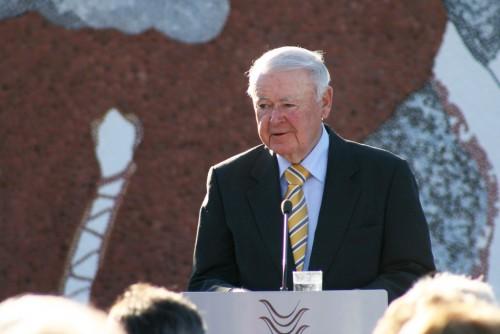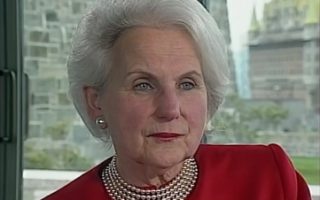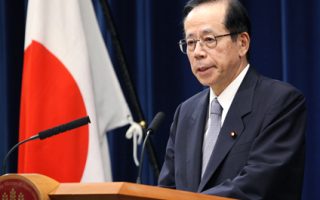kickstand-project.org – Sir William Deane served as the 22nd Governor-General of Australia from 1996 to 2001, a period marked by significant political and social changes within the country. Deane was an esteemed figure who brought a sense of dignity, compassion, and moral authority to the office. His tenure saw him advocate for reconciliation between Indigenous and non-Indigenous Australians and address national issues with a profound sense of empathy and integrity. Deane is remembered as a Governor-General who consistently upheld the values of unity, justice, and respect for all Australians.
Early Life and Education
William Patrick Deane was born on January 4, 1931, in Brisbane, Queensland. Growing up in Australia during the Great Depression, Deane developed a strong sense of community and social responsibility. He attended the University of Queensland, where he studied law, and graduated with first-class honors. Deane’s legal career began in earnest when he became a barrister in Brisbane, and he quickly gained a reputation for his intelligence, thoroughness, and fair-minded approach to the law.
Deane’s legal prowess and commitment to justice led him to a distinguished career in the Australian judiciary. He was appointed as a judge of the Federal Court of Australia in 1982, and later, in 1988, he became the Chief Justice of the High Court of Australia. As a jurist, Deane was known for his progressive views on social justice, human rights, and the protection of individual freedoms. His reputation as a fair and compassionate judge earned him respect across political and ideological divides.
Appointment as Governor-General
In 1996, after the retirement of Bill Hayden, Prime Minister John Howard appointed Sir William Deane as Governor-General of Australia. His appointment was well-received, as Deane was widely regarded as a person of high moral character and intellectual capacity. Deane’s background in law, his commitment to human rights, and his reputation as a principled leader made him an ideal candidate to serve as the Queen’s representative in Australia.
Deane’s appointment was also significant for the fact that he was the first Governor-General to be appointed following the election of the Howard government. At the time, there were debates about Australia’s future as a constitutional monarchy and the possibility of becoming a republic. Deane’s appointment was seen as a steadying influence during this period of national reflection on the country’s political future.
Tenure as Governor-General (1996–2001)
Sir William Deane’s time as Governor-General was marked by his focus on promoting national unity and addressing important social and moral issues. He was a Governor-General who understood the importance of the office as a symbol of Australian identity and values, and he used his position to advocate for the betterment of society.
One of the defining moments of Deane’s tenure came during the 1999 Australian republican referendum. The issue of whether Australia should become a republic was one of the most significant political debates in the country’s history. Deane, although a supporter of republicanism, carefully navigated his role as Governor-General, remaining politically neutral. He respected the democratic process, and his dignified stance allowed the debate to unfold without the interference of the office of the Governor-General.
During his time in office, Deane became a strong voice for reconciliation with Australia’s Indigenous peoples. His support for the reconciliation movement and the national apology for the “Stolen Generations” was pivotal. Deane worked closely with Indigenous leaders and advocates, encouraging a national conversation about Australia’s history and its impact on Indigenous communities. In 1997, Deane famously delivered a speech in which he spoke of the importance of acknowledging the historical wrongs committed against Indigenous Australians, including the forced removal of Indigenous children from their families.
Deane’s advocacy for Indigenous rights was also reflected in his personal efforts to connect with Indigenous communities across the country. He visited remote Indigenous communities and used his platform as Governor-General to promote a message of inclusion and healing. His commitment to reconciliation was an integral part of his legacy, and he played an essential role in raising awareness of the need for a genuine and ongoing dialogue between Indigenous and non-Indigenous Australians.
Leadership in Times of Crisis
Deane’s leadership during times of national crisis was marked by his empathy, wisdom, and strong moral compass. One of the most notable moments of his tenure occurred during the 1999 death of the well-known Australian cricketer, Phil Hughes. Deane’s message of solidarity and reflection during the grieving period exemplified his ability to connect with the Australian people on a personal level.
Another pivotal moment in Deane’s tenure was his response to the 1998 Sydney to Hobart yacht race disaster. In December 1998, six sailors lost their lives during the race due to severe storms. Deane’s response to the tragedy was one of compassion and support. He reached out to the families of the victims, providing comfort and acknowledging the bravery of the sailors involved in the event.
Additionally, Deane was involved in addressing the concerns of Australia’s refugees and asylum seekers. While he did not directly intervene in policy decisions, he often spoke on the need for Australia to maintain a humane and compassionate approach to immigration, emphasizing that Australia’s success as a nation was rooted in its inclusivity and openness to people from diverse backgrounds.
Resignation and Legacy
In 2001, Sir William Deane completed his term as Governor-General and was succeeded by Dr. Peter Hollingworth. Deane’s resignation came after five years of exceptional service, during which he had solidified his position as one of the most respected and influential figures in Australian history. His tenure as Governor-General was marked by his commitment to social justice, national unity, and his tireless efforts to promote reconciliation with Indigenous Australians.
Deane’s impact on the office of Governor-General was profound. He redefined the role, bringing greater visibility to moral and ethical issues, particularly in the realms of Indigenous rights and social justice. His leadership set a high standard for future holders of the office, demonstrating that the Governor-General’s role could be more than ceremonial—it could be an active force for positive social change.
Deane’s legacy is also tied to his personal qualities. He was known for his humility, his ability to listen to others, and his dedication to public service. His time as Governor-General earned him widespread admiration, and he left an indelible mark on the country he served so faithfully.
Conclusion
Sir William Deane’s tenure as Governor-General of Australia was marked by moral clarity, compassion, and a deep commitment to the values of justice and reconciliation. His leadership during significant national events, his advocacy for Indigenous Australians, and his role in guiding the country through debates about its future left a lasting legacy.
Deane is remembered as a Governor-General who used his position to bring attention to important social issues, including Indigenous rights, national unity, and compassion toward vulnerable communities. His time in office stands as a testament to the role of the Governor-General as more than a ceremonial figure, but as a moral and ethical leader who helped shape the values of modern Australia.



